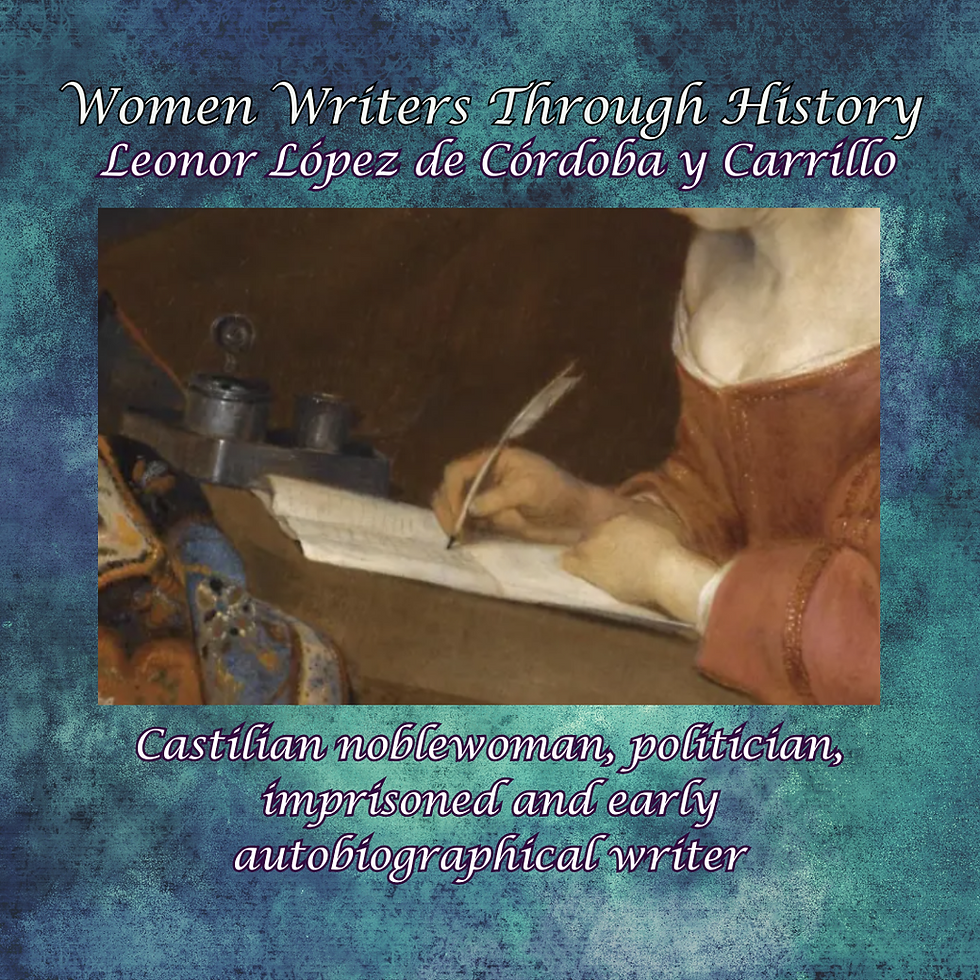Women Writers Through History | Leonor López de Córdoba y Carrillo | Early Castilian Autobiography
- Susan Stoderl
- Sep 18, 2024
- 2 min read
Updated: Oct 21, 2024

Leonor López de Córdoba y Carrillo (c. 1363 -1430) was a notable Castilian noble-woman, politician, and writer. She gained recognition for writing one of the earliest autobiographies in Castilian, entitled “Memorias.”
In 1369, his half-brother, Henry II, overthrew and killed King Peter of Castile, also known as Peter the Cruel. As a staunch supporter of King Peter, her father surrendered to King Henry II of Castile in return for safe conduct. Henry II ignored his promise, and instead executed her father and sentenced the entire family to prison in 1371 at the Atarazanas Reales of Seville. The prison was one of 17 shipbuilding naves built in the mid-13th century. Prisoners were chained in a wide-open space in a cold, damp environment. With little food, sanitation, or medical care, diseases were rampant.
Because of a provision in King Henry II’s will, Leonor and her husband, the only ones left of her family, were released eight years later. The family never regained its property. Leonor's aunt took them and then gave them a home. When one of Leonor’s sons died of the plague, they were asked to leave. He had been tending to Leonor’s adopted son, a Jewish boy probably orphaned because of the Córdoba pogrom in 1392.
Leonor wrote her autobiography between 1401-1403. Some believe she dictated it to a notary because of the many legal terms. This might have been used to apply for the legal restoration of their property. However, it also reflects the style of writing at the time. She praises the efficacy of prayer to the Virgin Mary. She also apologizes for her and her father’s actions. It begins as an act of piety but becomes a defense of her family’s good name. The prayers in the “Memorias,” certify the truth of Leonor’s story. She believes the favors granted by the Virgin Mary indicate that her father’s disgrace, imprisonment, and death must be unjust because of the Virgin Mary’s subsequent divine protection.
Beginning in 1403, Leonor served the wife of Henry III of Castile, Catherine of Lancaster as a trusted advisor and confidant. Leonor lost the queen’s favor and was banished from the court around 1412. The queen threatened her with being burnt at the stake if she ever returned.
Leonor returned to Córdoba to live until her death in 1430.




Comentários